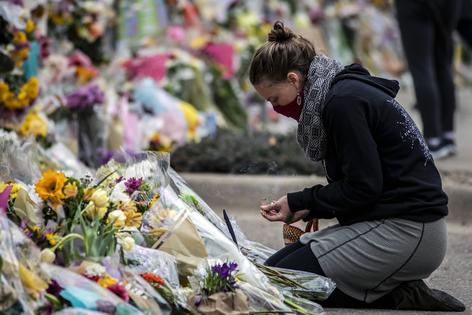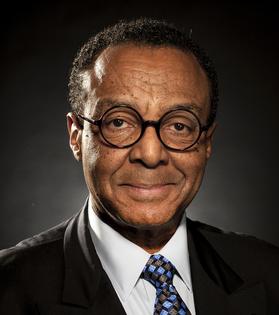Can Biden Chill the Spike in Gun Violence? He Knows He Must Try
Let’s start with a guessing game:
Which presidential hopeful made the following boast about how he was tougher on crime than even than “law-and-order” President Richard Nixon?
“Every time Richard Nixon, when he was running in 1972, would say, ‘Law and order,’ the Democratic match or response was, ‘Law and order with justice’ — whatever that meant. And I would say, ‘Lock the S.O.B.s up.’ ”
Who said that? Donald Trump? Ronald Reagan? George Wallace?
Nope, it was Joe Biden.
Yes, although times have changed and so has Biden. In judging now-President Biden’s actions to curb what threatens to be another crime epidemic, it’s helpful to remember how tough on crime he sounded on the Senate floor on behalf of his signature legislation, the 1994 Violent Crime Control and Law Enforcement Act, which President Bill Clinton would later sign.
And, fast forward, it also is helpful to remember how much that legislation was attacked by his party’s progressive wing, particularly by Black activists, during last year’s presidential campaign.
Does he face similar challenges now? Yes, although times have changed.
Back in the “Bonfire of the Vanities” urban crime wave of the late 1980s and early ’90s, both parties found a lot to like in the bill. It put more cops on the street, set stiffer sentencing for drug offenses, created incentives for the construction of more prisons, and temporarily banned so-called assault weapons.
Sweetening the package for the center-left, it included the Violence Against Women Act, Community Oriented Policing Services and a 10-year ban on military-style “assault weapons.”
Pressed by their constituents to do something about rising crack cocaine wars and overdoses, most of Congress — including most Black members — voted for it despite reservations about its tough punitive provisions.
And a 1994 Gallup survey found that a larger percentage of African Americans — 58% — supported the crime bill than whites at 49%. The only black senator, Carol Moseley Braun of Illinois, supported it while only 12 of the 40 members of the Congressional Black Caucus voted against it.
But many now feel bamboozled. Among other disasters, the new law fed “mass incarceration” disproportionately of African Americans, to the great regret of Black lawmakers and their allies. It punished users of crack far more severely than powder cocaine, under the mistaken belief that it was that much more addictive. It isn’t.
In 2016, Rep. Bobby Rush, former Illinois Black Panther leader, issued an apology for his support, calling it the “worst vote” he had cast since he came to Congress.
Was there a miscommunication? As several Black scholars observed, maybe the Black representatives asked for “better” policing but were heard by conservatives as seeking “more policing.” Words do matter in politics and governance.
Some Black members of Congress have told me that the law had so much that appealed to both sides that many thought it was the best they were going to get amid rising Republican power.
This time, judging by the administration’s description of Biden’s proposed initiative, his “Comprehensive Strategy to Prevent and Respond to Gun Crime and Ensure Public Safety” will focus on firearms, not drugs.
It aims to stem the flow of illegal firearms by using federal tools and resources to crack down, for example, on unlawful weapons dealers who avoid background checks.
Biden also aims to increase programs such as community-based anti-violence programs that have a good record for effectiveness, support law enforcement agencies with federal resources, help reentry programs for the formerly incarcerated and expand summer work programs for young people and violence interventions.
Will it work? I certainly hope so, although experience and a number of crime experts tell me that crime statistics have a frustrating habit of operating largely independent of the best intentions. The debate goes on, for example, as to exactly why crime dropped nationally in the mid-1990s. If politicians had the definitive answer to reducing crime, they’d all do it.
But, if anything does appear to be conclusive it is the mistake made by some voices on the left to “defund the police.” At best, they want some funds redirected to mental health and other services better suited to a non-police response.
But that helpful message too often gets lost and campaigns, usually Democratic, suffer. Some communities are “over-policed,” others are “under-policed,” but when we need the police, we want them to be there.
========
(E-mail Clarence Page at cpage@chicagotribune.com.)
©2021 Clarence Page. Distributed by Tribune Content Agency, LLC.
(c) 2021 CLARENCE PAGE DISTRIBUTED BY TRIBUNE MEDIA SERVICES, INC.










